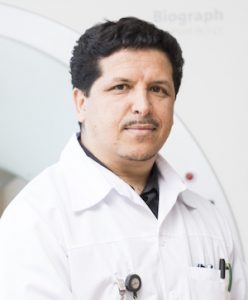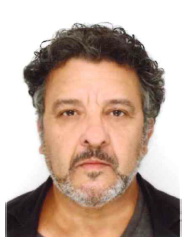Keynote Speakers

Geneva University Hospital, Switzerland
Title: “The emerging role of deep learning in multimodality medical imaging”.
Abstract:
This talk presents the fundamental principles and major applications of artificial intelligence (AI), in particular deep learning approaches, in multimodality medical imaging. To this end, the applications of deep learning in five generic fields of multimodality medical imaging, including imaging instrumentation design, image denoising (low-dose imaging), image reconstruction quantification and segmentation, radiation dosimetry and computer-aided diagnosis and outcome prediction are discussed. Deep learning algorithms have been widely utilized in various medical image analysis problems owing to the promising results achieved in image reconstruction, segmentation, regression, denoising (low-dose scanning) and radiomics analysis. This talk reflects the tremendous increase in interest in quantitative molecular imaging using deep learning techniques in the past decade to improve image quality and to obtain quantitatively accurate data from dedicated combined PET/CT and PET/MR systems. The deployment of AI-based methods when exposed to a different test dataset requires ensuring that the developed model has sufficient generalizability. This is an important part of quality control measures prior to implementation in the clinic. Novel deep learning techniques are revolutionizing clinical practice and are now offering unique capabilities to the clinical medical imaging community. Future opportunities and the challenges facing the adoption of deep learning approaches and their role in molecular imaging research are also addressed.

University of Tours, France
Title: « Ultrasound imaging »
Abstract:
Ultrasound modality has experienced in recent years a paradigm shift not only in technological terms but also in terms of data processing and in clinical applications for both diagnosis and therapy.
The recent introduction of plane wave ultrasound imaging has enabled the development and validation of new imaging modes such as ultrafast Doppler, elastography, super resolution imaging with contrast agent or functional imaging. Thanks to sophisticated signal processing techniques (SVD, artificial intelligence, power processing, advanced engineering, etc.), ultrasound imaging modality offers today superior image quality capable of competing with well-established and very expensive modalities.
Beyond the diagnostic dimension, innovative therapeutic applications have emerged to deliver drugs locally or to modulate brain activity.
In this presentation, we will discuss recent developments in ultrasound imaging and present examples of clinical and preclinical applications. Also, we will address the recent applications of ultrasound to treat various diseases including cancer, neurodegenerative diseases or psychiatric disorders.

